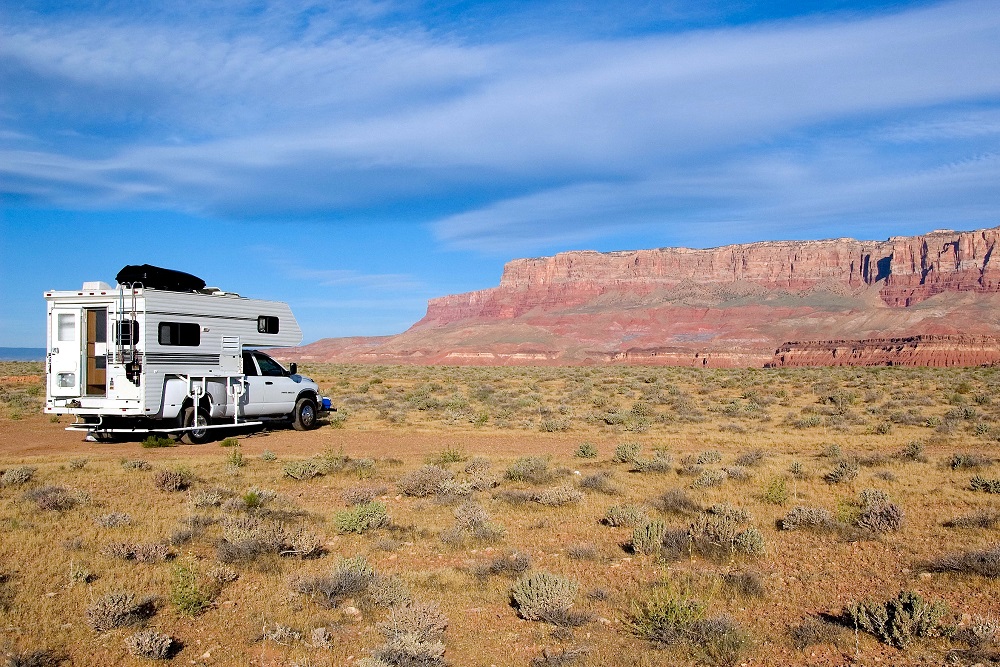RV owners are known to talk about boondocking and dry camping. The two terms are used interchangeably within the RV community. However, some people see the two types of camping as different. Though the difference may be semantic, some people think it is important enough to distinguish between the two.
As an RV owner yourself, have you ever gone boondocking or dry camping? If so, was it an enjoyable experience? The beauty of owning a motorhome, travel trailer, or fifth wheel is that there are so many ways to enjoy them. From public campgrounds to state parks, there is something for everyone.
Dry Camping Is More General
‘Dry camping’ is a generic term that refers to any type of RV camping not involving hookups. The idea of being ‘dry’ is a reference to not having access to water or sewer hookups. The one thing to know about dry camping is that it involves an RV of some sort. Tent camping is not considered dry camping because you wouldn’t otherwise have need for hookups with a tent.
What makes dry camping unique in the eyes of those who draw a distinction is the fact that it can take place just about anywhere. Most dry campers look for remote wilderness spots away from commercial campgrounds. They prefer to be out in the middle of nature. But technically, you could dry camp anywhere.
Remember that dry camping only refers to a lack of hookups. An RV owner who stops for the night and asks to park in a department store parking lot is essentially dry camping for that brief amount of time. An RV owner who pulls their rig into the backyard of one of their kids may dry camp for a week or two. Dry camping does not require being in the middle of nowhere.
Boondocking Is More Specific
Location is really what makes boondocking different from dry camping. To die-hard boondockers, a remote location is key. They don’t go boondocking in parking lots and family backyards. Boondocking, as a general rule, involves an isolated environment with a limited number of campers in the general vicinity.
Boondocking is a form of dry camping in the sense that there are no electricity, water, and sewer hookups in the middle of nowhere. But it is a more specific form of dry camping in that the remote location is non-negotiable.
Boondocking is pretty common on federal lands. In some cases, it is perfectly legal to drive into the vast acreage that is federal land and set up wherever you like. In other cases, a permit is required. One way or the other, the boondocking enthusiast is not one content to set up at a public campground along with hundreds of other RV owners.
Both Require More Work
Dry camping and boondocking share some similarities. One is the need for more work. Simply put, both dry camping and boondocking require more effort from the RV owner. For example, consider what it takes to protect an RV against cold temperatures.
Protecting an RV’s plumbing requires installing a skirting solution. AirSkirts is a Connecticut company that manufactures an inflatable skirting solution. Other companies offer fabric and foam products. Either way, it takes time and effort to install skirting. Then there is the matter of buttoning up windows and doors to keep the cold out.
Many a casual RV owner uses the terms ‘boondocking’ and ‘dry camping’ interchangeably. To die-hard fans of both types of camping, they are distinctly different. Yet both still offer an opportunity to camp outside the constraints of the public campground.

